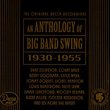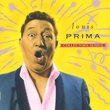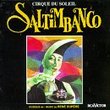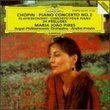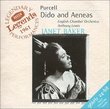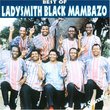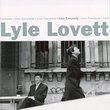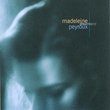| All Artists: Ludwig van Beethoven, Spoken Word, Pyotr Il'yich Tchaikovsky, Antal Dorati, David Hall, Harold Lawrence, University of Minnesota Brass Band, London Symphony Orchestra, Minneapolis Symphony Orchestra, Minnesota Orchestra Title: Tchaikovsky: 1812 Festival Overture; Capriccio Italien; Beethoven: Wellington's Victory Members Wishing: 0 Total Copies: 1 Label: Philips Release Date: 11/14/1995 Genres: Special Interest, Classical Styles: Forms & Genres, Symphonies, Historical Periods, Classical (c.1770-1830), Modern, 20th, & 21st Century, Romantic (c.1820-1910) Number of Discs: 1 SwapaCD Credits: 1 UPC: 028943436021 |
Search - Ludwig van Beethoven, Spoken Word, Pyotr Il'yich Tchaikovsky :: Tchaikovsky: 1812 Festival Overture; Capriccio Italien; Beethoven: Wellington's Victory
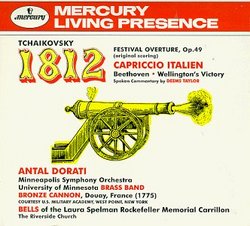 | Ludwig van Beethoven, Spoken Word, Pyotr Il'yich Tchaikovsky Tchaikovsky: 1812 Festival Overture; Capriccio Italien; Beethoven: Wellington's Victory Genres: Special Interest, Classical
It's hard to believe that this, the BEST EVER 1812 Overture was not only recorded in the 1950s, but it still sounds better than any other version. This last fact is a tribute to the remastering expertise of producer Wilma ... more » ![header=[] body=[This CD is available to be requested as disc only.]](/images/attributes/disc.png?v=a4e11020) ![header=[] body=[This CD is unavailable to be requested with the disc and back insert at this time.]](/images/attributes/greyed_disc_back.png?v=a4e11020) ![header=[] body=[This CD is unavailable to be requested with the disc and front insert at this time.]](/images/attributes/greyed_disc_front.png?v=a4e11020) ![header=[] body=[This CD is unavailable to be requested with the disc, front and back inserts at this time.]](/images/attributes/greyed_disc_front_back.png?v=a4e11020) |
Larger Image |
CD DetailsSynopsis
Amazon.com essential recording It's hard to believe that this, the BEST EVER 1812 Overture was not only recorded in the 1950s, but it still sounds better than any other version. This last fact is a tribute to the remastering expertise of producer Wilma Cozart Fine, and a still greater tribute to her late husband, a recording genius, for leaving her with such fantastic quality original tapes to work with. If you want real cannon, the sound of a zillion bells, and a really sensational brass band, all perfectly blended together to produce the ultimate in audio spectacle, then baby this one's for you. Wellington is, if anything, even noisier--though a lot less valuable musically. Still, it's the only logical coupling, and every single cannon blast and musket shot comes over with thrilling immediacy. What a disc! --David Hurwitz Similarly Requested CDs
|
Member CD ReviewsReviewed on 7/2/2015... I googled to find a high rated Tchaikovsky 1812 Overture and this was one of the ones to get the best reviews. Recorded in 1959 and remastered from the original tapes the cd sound great. A bit expensive at Amazon but I thought it was a good purchase. Booklet is put together well also - Rate 4.5 out of 5.0 at All Music Guide Site!! - David N
CD ReviewsAn extraordinary musical accomplishment! Mike Powers | Woolwich, ME USA | 05/16/2000 (5 out of 5 stars) "This is the most extraordinary version of Tchaikovsky's "1812 Overture" I've ever heard! Peter Ilyich Tchaikovsky composed the "1812 Overture" in 1880 to commemorate Russia's victory over Napoleon Bonaparte in 1812. This recording was made in 1958. The playing of the Minneapolis Symphony Orchestra and the University of Minnesota Brass Band, under the direction of Antal Dorati, is fantastic. At their hands, the music is passionate, exuberant, and breathtaking. In addition, a real French cannon (cast in 1775, and now owned by the U.S. Military Academy) and a real cathedral carillon were used instead of bells and percussion instruments. Dorati conducted the London Symphony Orchestra in its 1960 recording of "Wellington's Victory," composed by Ludwig van Beethoven to commemorate the Duke of Wellington's victory over King Joseph Bonaparte at the battle of Vitoria in Spain, in 1813. Again, actual cannon and muskets from that era were used instead of percussion instruments. The effect is no less brilliant than the "1812 Overture." Tchaikovsky's "Capriccio Italien" is also superbly played by the London Symphony Orchestra. The CD sound quality throughout is outstanding -- so good, in fact, it's hard to believe these recordings were originally mastered over 40 years ago! Also included are two tracks containing spoken commentary by Deems Taylor, a noted musicologist. His explanation of how the recordings of the "1812 Overture" and "Wellington's Victory" were made is very interesting. Unfortunately, these tracks are interspersed with the music, so if you don't want to listen to them, you have to program them out or manually skip them. I would have preferred to see the commentary either at the end of the disc, or on a seperate disc altogether. That, however, is only a minor shortcoming. This is an essential CD for any classical music lover. It is an exciting, dynamic, and thrilling listening experience!" The Greatest 1812 Overture: Orchestral Battle Music Rachel Garret | Beverly Hills | 01/09/2003 (5 out of 5 stars) "This recording by the Mercury Living Presence label is undoubtedly, definitively, the ultimate 1812 Overture, simply the greatest. There are many fine interpretations of the legendary 1812 Overture, composed by Tchaikovsky, and used ad nauseum during 4th of July celebrations and in concert, but this particular orchestration at the hands of the eminent conductor Antal Dorati is the best. As an added bonus, the digitally remastered late 50's LP recording features spoken commentary by Deems Taylor and behind-the-scenes information on the making of the recording. Antal Dorati and the Minneapolis Orchestra outdid themselves with a vivid orchestration of Tchaikovsky's 1812 Overture. It sounds graphic, springing to life with frenzied strings and the charming Marseilles theme, at variance with the Russian national anthem. It is true battle music, a musical dramatization of the war between Russia and Napoleon's forces in 1812. The conclusion has been used in films, commercials, cellular phones, radio and in live concerts with fireworks during the 4th of July. It is the victory theme. For a dramatic touch, cannon and bells were used for this final section. Deems Taylor tells us how on a sunny morning in the late 50's, a team got together at West Point Academy and rehearsed for the recording time and again to get the perfect sound. They used a 1775 bronze cannon from Douay France, an actual cannon that was fired in Napoleonic wars. The clamor of the bells that herald victory were used by permission of the Bells of Laura Spelman, Rockefeller Memorial Carillon of Riverside Church.As a delightful "intermission" between Tchaikovsky's 1812 Overture and Beethoven's Wellington Victory, this recording has the bonus feature of Tchaikovsky's Capricio Italian "Italian Caprice", a festive Italian-style work that Tchaikovsky composed while vacationing in Italy. There are florid passages- a tarantella, with swirling dance-like themes, the bella ragazza theme and even Spanish-like melody. It provides a nice break between the violence of the two "battle pieces".Beethoven's Wellington Victory was the source of inspiration for Tchaikovksy's 1812 Overture. Beethoven lavished the score with muscular trumpets, rapid trills on the strings, exciting, intense accents on the musical lines. Th music begins with drum rolls and with the themes "Rule Britania" and "For He's a Jolly Good Fellow", followed by climatic battle music that at times feels like we are watching a battle on film accompanied by a terrific musical soundtrack, at one point resembling a Western. For this recording, the London Symphony Orchestra and Antal Dorati's team worked themselves weary to attain perfection. They again returned to West Point, as Deems Taylor comments, and live cannon and musket firing was included by a reactivated Civil War Unit, Battery B, 2nd New Jersey Light Artillery. Deems Taylor takes us back to the making of Wellington's Victory. This is a must for specialized music, especially battle music, and for those who will want to hear the greatest 1812 Overture, complimented by cannon. Finally, it is a remarkable testament to the genius and dramatic flair of Antal Dorati, who was, in my opinion, an equal to Arturo Toscanini."
|

 Track Listings (6) - Disc #1
Track Listings (6) - Disc #1
